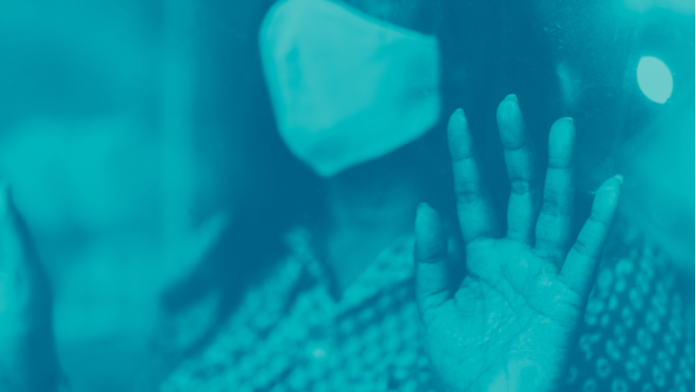An Omani study in which 1,580 citizens and residents took part shows that 30 per cent of them, the majority being women, suffered moments of anxiety and sleep disorders related to COVID-19.
In a statement to Oman News Agency (ONA), Dr. Hamad Nasser al-Sinawi, Senior Consultant at the Department of Behavioral Medicine at Sultan Qaboos University Hospital, said, “Upon the start of the pandemic, we conducted a research that confirmed frontline operators’ exposure to psychological pressures which turned into disillusionment when the cases of infection went up. Exhaustion also had its toll on medical staff who had to continue working for longer durations due to the steady rise in cases that required medical care.”
Dr. Hamad added that depression and sleep disorders figure high among psychological impacts that show on patients of all age groups. He then pointed out that, at present, taking the vaccines and living with the virus (COVID-19) is one of the most efficient methods of a gradual return to normal life.
Some countries vaccinated a large proportion of their populations and set themselves on track for the next stage, said Dr. Hamad, noting that hesitation about taking vaccines or believing rumours circulating in social media or exaggeration of the phobia will only lead to the persistence of infection and more loss of life and money.
Dr. Badr Ali al-Habsi, Medical Consultant and Director of Al-Masarra Hospital, told ONA that elaborate studies around the world reaffirmed the rise in symptoms of anxiety and depression ranging between 48%-51%. Post-shock and sleep disorder cases increased significantly recently.
Meanwhile, Dr. Nada Abdullah al-Balushi, Specialist at the Rehabilitation Department of Al-Masarra Hospital, said that women and young people aged 40 or less constitute the most vulnerable segments impacted with depression, irrespective of the extent of prevalence of the pandemic and the outcomes of social distancing or isolation that limit youth activities.
In the same context, Health Minister Dr. Ahmed Mohammed al-Sa’eedi regretted the fact that some shunned vaccination with Oxford-AstraZeneca. He reaffirmed that the Sultanate will not receive any vaccine or medical drug before checking that it is safe and secure for human consumption.
In an earlier statement to Oman News Agency (ONA), he exhorted citizens, residents and health workers to come forward and take the vaccines which, he said, are effective and secure. He reaffirmed that no serious side-effects were registered in the Sultanate or elsewhere in the world so far from COVID-19 vaccines.
The minister deplored unfounded rumours and wrong information in circulation via social media about the vaccines. He also expressed his dismay at some health workers’ favouring some vaccines over others, noting that such opinions are not based on any scientific evidence.
Dr. Ahmed underscored the fact that there is scientifically and practically no difference between PfizerbioNTech and Oxford-AstraZeneca, though one of the two might by more abundant than the other at a certain time.






